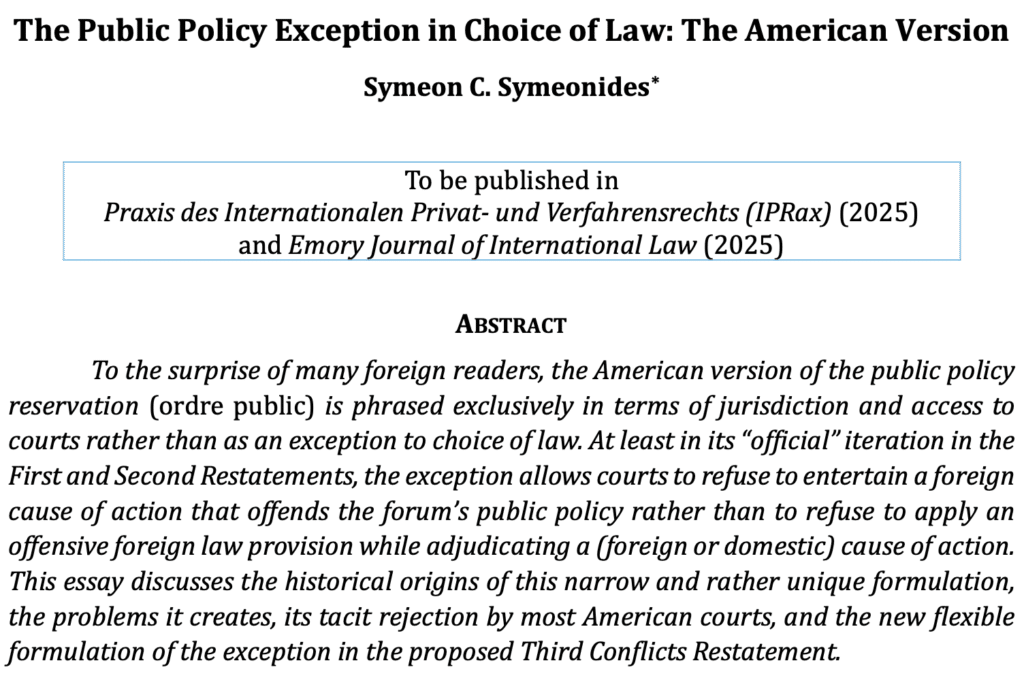When a dispute has a connection to more than one jurisdiction, and when the laws of those jurisdictions are materially different, a court must perform a choice-of-law analysis to determine which law to apply. To make this determination, a court will typically apply the choice-of-law rules of the jurisdiction in which it sits. Although choice-of-law rules vary significantly across U.S. states, many courts look to the Restatement (Second) of Conflict of Laws for guidance. The American Law Institute is currently in the process of drafting the Restatement (Third) of Conflict of Laws.
A Primer on Choice of Law
Choice-of-law rules are used to determine the rights, duties, and liabilities of persons involved in a case with a connection to more than one jurisdiction. In the United States, most choice-of-law rules are state law; the federal government rarely legislates in this area. Courts in the United States apply the same choice-of-law rules to international…
Continue ReadingA Costly Drafting Mistake
When I teach Conflict of Laws, I spend a lot of time showing my class how to draft a good choice-of-law clause. It’s not hard. Everything you need to know is laid out in the Primer on Choice-of-Law Clauses. Unfortunately, these instructions are not always followed. In one recent case, Pool Scouts Franchising LLC v….
Continue ReadingDemystifying Borrowing Statutes
A borrowing statute is a law directing the courts in one jurisdiction to “borrow” the shorter statute of limitations of another jurisdiction. Borrowing statutes are common in the United States—thirty-six states have enacted them—but they are largely unknown in the rest of the world. In this post, I seek to demystify borrowing statutes for the…
Continue ReadingNew Article on the Public Policy Exception to Choice of Law
In every private international law system, the forum state reserves the right to reject the application of a foreign rule that deeply offends the forum’s fundamental sense of justice and fairness. In all systems, this “public policy reservation” (ordre public) operates as an exception to the forum’s choice-of-law rules, not its rules on jurisdiction or…
Continue Reading


